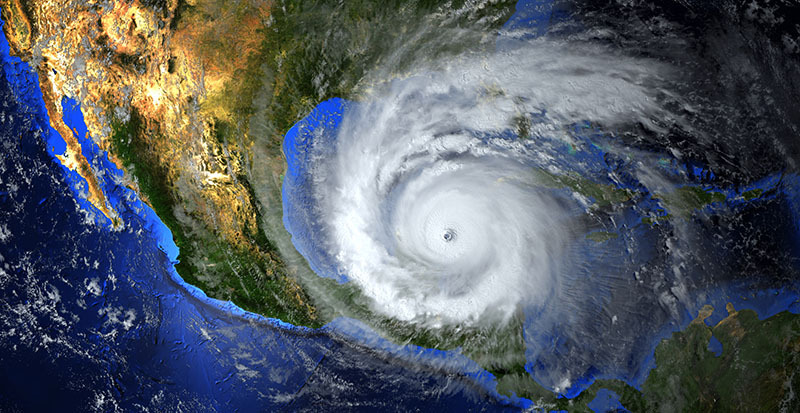Why Effective Hurricane Preparedness Hinges on Gaining Better Insights Into Your Supply Chain

Hurricane season is a crucial time to consider disaster preparedness and disaster relief programs available so that individuals and organizations can proactively prepare for and actively respond to negative circumstances that may arise. More specifically, it’s crucial to optimize fuel supply chain operations so that emergency demand can be addressed and mitigated in a timely fashion. The challenge, however, is developing a model for estimating fuel demand and making informed decisions on supply distribution, considering hurricane path and severity.
Hurricanes can severely congest supply chains and contribute to product shortages, as they have the potential to wreak havoc not only on transportation systems and highways but also on the supply chain hubs themselves, causing other suppliers to provide coverage and relief to compensate.
READ MORE: Analytics & Optimization: How You Can Stay Ahead Of Disruptions From Hurricane Season
The Atlantic hurricane season takes place from June 1st through November 30th, during which the Gulf Coast region is particularly susceptible to catastrophe. Although less obvious, the rest of the nation is still vulnerable to the consequences of these disasters. Louisiana’s refineries contribute to almost one-fifth of the United States’ crude-processing capacity, posing an extreme risk to nationwide fuel supply in the event of an emergency. Hurricane Ida is a recent example of the detriment caused by these natural disasters. On August 29, 2021, Ida made landfall in Louisiana as a Category 4 hurricane. As a result, 96% of crude oil production and 94% of natural gas production in the U.S. federally administered areas of the Gulf of Mexico (GOM) were shut-in. These shut-ins impacted August production, as well as production in the following months as refiners slowly ramped up volumes again. Refineries needing infrastructure repairs were offline for longer periods, thus tightening supply and leaving space for unfilled demand.
READ MORE: Myth vs. Reality: First Steps In Supply Chain Optimization
Effective hurricane preparedness means leveraging an organization’s distribution process to allow space for adaptive and agile responses to these catastrophic events. Real-time, data-driven decisions prove most effective, and at Opportune, we have the right combination of energy industry expertise, system knowledge, accelerators, and organizational change capabilities to help make your logistics and operations initiatives successful and to help you proactively prepare for catastrophic events like hurricanes.
CLICK HERE for more information on how Opportune can help you prepare during this hurricane season so you can get better visibility into your supply chain and enhance logistics.
About The Expert
Clayton Bornman is a Consultant in Opportune LLP’s Process & Technology practice based in Houston. She specializes in providing business management and technology expertise across the energy industry and supply chains. Such work includes business process design and improvement, software selection and implementation, business and IT strategy, and other technology services. Most of Clayton’s work has been in the downstream sector, working with clients to enhance operational efficiencies by streamlining their business processes and developing initiatives to improve the business’s organizational, process, and/or technological capabilities. Clayton graduated from Texas A&M with a BBA in Business Honors and Management.
Related Insights
Our experts are here
for you.
When you choose Opportune, you gain access to seasoned professionals who not only listen to your needs, but who will work hand in hand with you to achieve established goals. With a sense of urgency and a can-do mindset, we focus on taking the steps necessary to create a higher impact and achieve maximum results for your organization.
LeadershipGeneral Contact Form
Looking for expertise in the energy industry? We’ve got you covered.
Find out why the new landmark legislation should provide a much-needed boost for the development of carbon capture.




